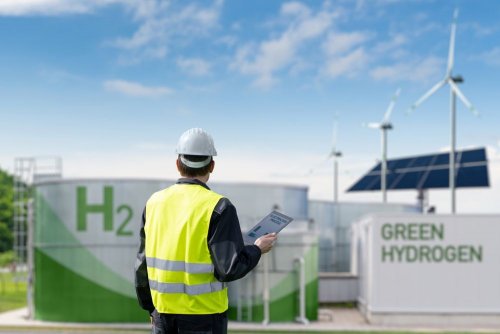An analysis by the Beyond Fossil Fuels campaign group has shown that only four of the 10 EU countries that plan to phase out fossil fuels by 2035 or earlier have committed to replacing coal and gas with renewable energy sources.
Other countries rely on inappropriate power generation technologies, Euronews reports.
The analysis emphasized that only Austria, Denmark, Lithuania, and Luxembourg plan to replace coal and gas with renewable energy sources. Belgium, France, Germany, Greece, Italy, and the Netherlands have also pledged to decarbonize their energy sector by 2035. However, they are not clear enough about the need to specifically phase out coal and gas in their plans or rely on inappropriate electricity generation technologies.
The report adds that the amount of bioenergy that can be sustainably obtained from ecosystems is limited, especially in the context of the climate crisis and declining biodiversity. In addition, the construction of new nuclear power plants is quite expensive and constantly postponed, and carbon capture and storage technologies have not yet been launched.
It is noted that these 10 countries represent more than 60% of the EU energy sector.
The International Energy Agency recommends 2035 as the time when European countries must decarbonise their energy sectors to achieve a 1.5℃ limit on global warming.
"It is encouraging that many European governments share the desire to usher in an era without fossil fuels by committing to the energy sector by 2035. Now more people need to follow suit," said Beyond Fossil Fuels campaigner Tara Connolly.
The article said that Portugal, Sweden and Romania have similar obligations, but do not meet this date. Although they could increase the number of decarbonized energy capacities of the EU to 70%.
Beyond Fossil Fuels emphasized that specific national commitments are the first step in transforming Europe's energy sector. After all, it provides clear signals to industry and the financial sphere about the direction of the energy transition.
"Meeting the 2035 timeline is only part of the challenge. Governments must clearly state their commitment to phase out coal and gas and replace them entirely with renewables," Connolly said.
Earlier, EcoPolitic wrote, that, according to the EU climate and weather monitoring service Copernicus, in February, the average temperature exceeded the pre-industrial period by 1.77°C and reached a new historical record.
As EcoPolitics previously reported, a study by Polish economists showed that, according to some indicators, a number of EU countries have already achieved the seventh UN Sustainable Development Goal by 2030, i.e. in the field of sustainable energy, during 2020-2021.





